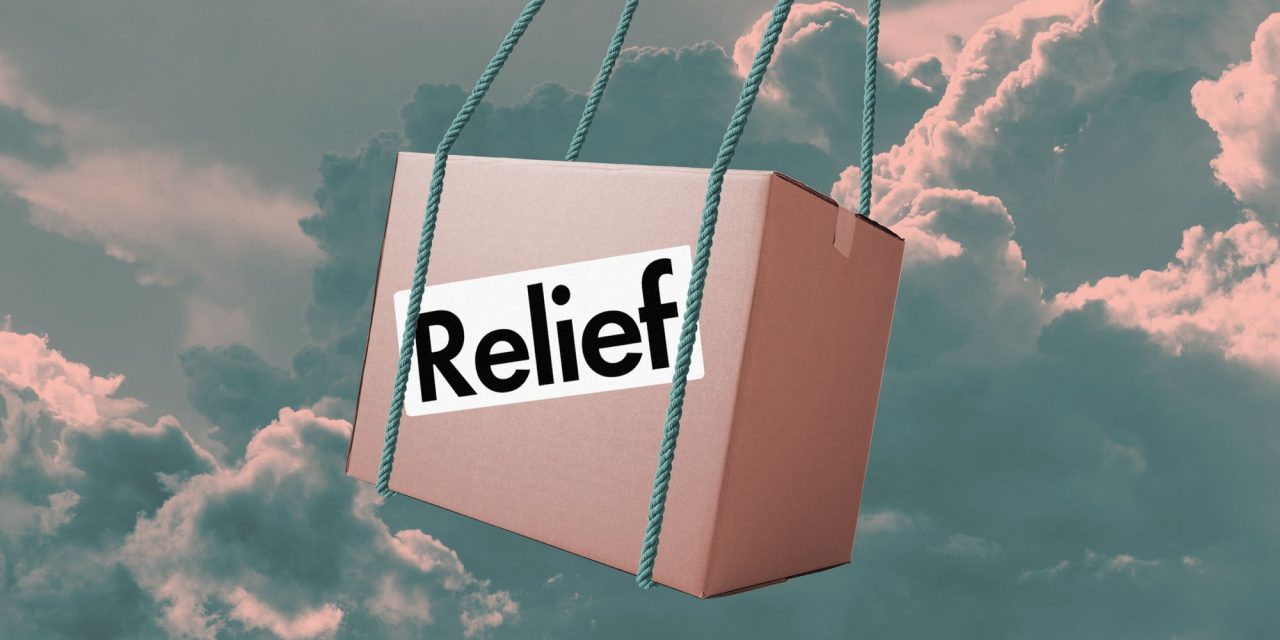A guide to (what we know so far about) taxes, benefits, sick leave and other forms of financial relief in the age of Covid-19.
*
This article was originally written for and published by Wealthsimple.com
on March 20th, 2020 and has been republished here with their permission.
*
The economy, like seemingly every fibre of normal life, has been disrupted. The government rushed in on March 18 with an $82 billion relief package to address the pain of those disruptions, for which we’re grateful. A lot of that relief is earmarked for people who’ve lost their jobs, people who have to file their taxes, a world plowed under by huge financial losses. Of course, now we all have to figure out what it means and how, and if, to take advantage of everything on offer.
Of course, this isn’t the final draft. There will be new rules, new efforts, new legislation. Here’s what we know now. Keep an eye on this space and we’ll keep you abreast of changes when they happen.
Part One: Taxes
Extended Filing Deadline
- What is it? If you can even remember what life was like just a few weeks ago, you may remember that you were likely about ready to pop your tax return, possibly along with a big fat cheque, in the mail to meet the deadline. Well, as part of the government relief package, the tax deadline has now been bumped one month — from April 30 to June 1.
- What does it mean for me? It means you can wait until later this spring to file your taxes. The idea is that it’ll help those of us who owe the government money but anticipate they’ll need that money to make ends meet through this crisis. Statistically speaking, though, most Canadians will receive a refund — if you’re one of them, you should file as soon as possible to get that refund. And even if you owe money, it makes sense to file now (there’s no reason to wait, and you may have more time on your hands than usual) but pay the taxes you owe later. See the next section for details.
Extended Payment Deadline
- What is it? Perhaps more importantly, the CRA is allowing all taxpayers to defer any tax payments due between now and August 31, 2020, to that last day in August. Any payment you owe between now and then can be paid on August 31.
- What does it mean for me? This may be especially helpful to gig workers. Freelancers often pay their taxes quarterly in March, June, September, and December. But since some of these folks may have had their work lives disrupted in the last weeks, they can use money they’d saved for their June 15 quarterly payment as emergency funds. Our SimpleTax experts explain: Don’t think of this as a panacea, because you’ll eventually have to make those payments (unless your income goes down so significantly that you wouldn’t have owed that money to the government anyway). But even though you may essentially be borrowing that money from the government (interest-free), it’s far wiser to do that than it is to take on high interest debt (credit cards, etc.) to make ends meet, or break into your RRSP.
Part Two: Unemployment
Employment Insurance
- What is it? If you, like so many other Canadians, lost your job as a result of the pandemic, we’re sincerely sorry. This part hasn’t changed: the first thing to do is file for EI benefits. You can find information about that here. Normally there’s a one-week waiting period before you start to get your payments, but the government is waiving that for the next six months.
- What does it mean for me? If you qualify for EI (salary and shift workers generally do, freelancers generally don’t) you’ll typically be eligible to receive 55% of your pre-tax income up to a maximum weekly benefit of $573 for as many as 45 weeks. This is an area to keep your eye on. The rules may change; there may be benefit extensions or increases.
Employment Insurance for gig workers (Emergency Support Benefit)
- What is it? In more normal times, if you’re a freelancer or gig worker and you lose your job, you don’t qualify for employment insurance. But as part of the new $82 billion support package, there’s promise of a $5 billion “Covid-19 emergency support benefit” for those gig workers and others who wouldn’t have qualified for EI benefits.
- What does it mean for me? To be honest, we’re not yet certain since the details haven’t been announced. Watch this space for updates.
Paid sick leave if you don’t have paid sick leave (Emergency Care Benefit)
- What is it? Not all employees get paid sick leave through their employers. As part of this relief package, though, the government has promised an “Emergency Care Benefit” available to any worker — freelancers included — who doesn’t get paid sick leave through their employer. It covers those who miss work because they have, or care for, someone infected with Covid-19, or who are in self-isolation or quarantine.
- What does it mean for me? The benefit will pay up to $900 every two weeks for a period of up to 15 weeks. To cut down on red tape, the government will waive the usual requirement of a doctor’s note. The application process, which will be accessible through your CRA MyAccount, your My Service Canada account, or a soon-to-be-announced toll-free number, will commence sometime in April.
Canada Child Benefit
- What is it? The existing Canada Child Benefit is a monthly pre-tax payment for Canadians with children under 18 who qualify. This is a one-month increase to the existing benefit for those who need to stay home to care for kids who aren’t in school because of Covid-19.
- What does it mean for me? Parents will be eligible to receive an additional $300 per child as part of their May payment. That means, for instance, that a hypothetical family with two children that had been receiving $900 a month in CCB funds would be eligible for $1,500 in May.
Part Three: Other benefits
Mortgage Payment Deferrals
- What it is? Many Canadians’ biggest investment is their home. But that means that for many Canadians their biggest expense is their mortgage payment. It stands to reason that during these uncertain times, staying on top of mortgage payments could be a huge stressor. As part of an announcement from the Canadian Bankers Association, all of the “Big Six” Canadian banks are offering a lifeline to clients in the form of a six month deferral on all mortgages.
- What does it mean for me? Obviously, if you don’t have the money to pay your mortgage because your income has been interrupted or there have been other unexpected expenses or disruptions as a result of the pandemic, you should take advantage of this. You’ll need to call your bank and make them aware of your predicament to take advantage of the benefit. What’s not clear yet is whether you’ll be able to postpone mortgage payments interest-free, or whether interest on deferred mortgage installments will accrue until the payments are made.
Credit Card Relief
- What it is? There was another significant part of that announcement by the Canadian Bankers Association: the big six banks would be offering “the opportunity for relief on other credit products.” The verbiage isn’t specific so it’s unclear at this point how this promise will translate to actual relief.
- What does it mean for me? Like we said, the details aren’t clear, though we expect it will mean either temporarily reduced interest rates or even a payment plan that forgives minimum payments for a short period until economic conditions normalize, depending on your situation. It’s worth calling your bank or credit card company to find out. If you have high debt payments and your income has been interrupted or if you find yourself needing to rack up an uncomfortably high credit card balance to keep you or your family afloat, it behooves you to find out what kinds of breaks the banks are willing to offer. And in general, in times like these, it never hurts to ask your financial company for whatever you really need. They may say yes.
RRIF minimum withdrawal changes
- What it is? Younger folks will hopefully have decades to allow their RRSP portfolios to recover from this crisis, but retirees aren’t so lucky. Especially since those over 71 are required by law to take minimum distributions from their RRIFs, which can essentially mean selling assets at a moment of huge losses. In order to cushion the blow a bit, the government is reducing annual minimum withdrawals from RRIFs by 25%.
- What does it mean for me? The purpose of this change is to allow accounts some time to recover from their recent lows, so withdrawals can be made when the markets will (hopefully) be on firmer ground. If you don’t need these withdrawals for short-term expenses, it makes sense to reduce your withdrawals to give your portfolio more time to recover.
*
GET YOUR MONEY IN ORDER WITH
WEALTHSIMPLE + THE REBEL MAMA

THE REBEL MAMA’S HANDBOOK FOR (COOL) MOMS
HITS SHELVES THIS APRIL!
Preorder Yours

*
If you like what we’re doing, follow us on:
INSTAGRAM, TWITTER, and FACEBOOK






From Our Comments